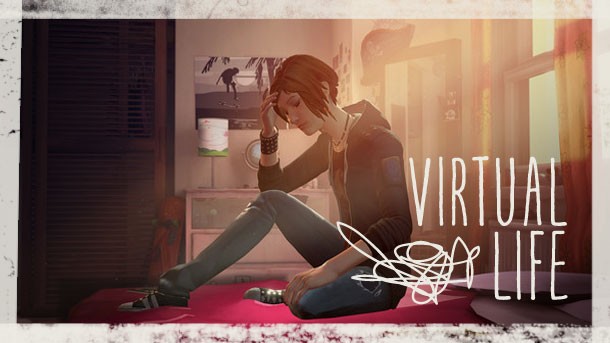Please support Game Informer. Print magazine subscriptions are less than $2 per issue
The Virtual Life – Video Games Should Celebrate The Little Moments More

By and large video games are very loud. Not just in the echoes of gunshots or the explosions of conveniently placed red barrels, but also in their storytelling, especially when it comes to interactions between characters. There are practical reasons for this, with a large number of story-driven games also being action-packed thrill rides like Uncharted, Gears of War, Far Cry 5, and Bioshock. You might not think of those as story-driven experiences, but they all have plots, character arcs, and themes. Gears of War 4, for example, is about a new generation stepping up to fill the previous one's boots, as well as the bonds of friendship and family, and how to weather loss and move on from it. That does not mean Gear of War 4 tells that story gracefully of course, but it is a story that tackles that subject matter.
Every story beat in Gears is loud, thrillingly so, with people screaming about their relationships to one another or grieving over the loss of someone with cries of pain. Everything happens in extremes and only in extremes. For Gears and other action-focused games, that fits because they're works of exaggerated style, where storytelling takes a back seat to the rhythms of gunfire and melee execution.
And yet, as someone who enjoys both action titles and more heady narrative-driven games, I can't help but feel like there's a relatively easy way to have your cake and eat it too when it comes to fleshing out characters even in games that don't aspire to be heart-wrenching or emotionally profound works. All it takes is slowing down things a bit and handing a little more control to the player.
There's this moment early on in Life is Strange: Before The Storm. You're playing Chloe, a teenager who recently lost her father and is dealing with her mother dating a new man in the midst of her own grief, and your mother has asked you to fetch her cell phone. While you're looking through her things, you find an old photograph of Chloe, her mom, and her dad all together, hidden away in Mom's dresser. Chloe laments, in beautifully understated language, her mother hiding the photo because she's dating someone new. This scene takes maybe two, three seconds to play out and yet it's packed with a world of information not just about Chloe's emotional state but also paints an empathetic picture of her family as a whole. Indeed, one of Before The Storm's greatest qualities is that none of its characters are heroes or villains. They fill those roles in the design of the story, sure, but their actions and interactions with one another make them feel like people, people who screw up, who have yearnings and desires, and are uncertain how to navigate those emotions in a way that's fair to themselves as well as the people around them. That is the very axis on which Before The Storm spins, exploring the surprisingly mundane horrors of trauma.
You can watch that whole bit right here by skipping ahead to the 34:00 mark:
Now, compare that scene with the one in Gears of War 4 where James reunites with Marcus:
The scene is beautifully shot. The exchange is understated, hinting at the complex emotions between the estranged father and son, and well done. It's a very cinematic way of giving the player information about these characters, and it's absolutely fine in the way it works in context of Gears of War, but it's also a scene that hints at a relationship that I wish the game dove into more. Yes, Marcus and James are estranged for vague reasons surrounding Anya's death and the aftermath of the original series. I love Gears of War 4. I loved its action sequences, its balance of brutality and goofy character-driven antics, how it rebooted the series while respecting what fans loved about it. However, I would have loved to have the game mine its emotional moments a little more in subtler ways that were left to the player's control, like maybe having an option to try and talk with Marcus during some downtime, or even some environmental narrative bits, like journals or recordings that focus on personal relationships. Let the player be the director of the experience just a bit more.
Please don't think I'm saying that Gears of War 4 or Uncharted or any other similar game that uses cinematic storytelling is flawed for doing so, that's not my point. Instead, what I'm saying here is that I would love for genre works to draw more inspiration from narrative-focused adventure games like Life is Strange, Telltale games, and other similar critical darling story-driven games when it comes to telling us about the worlds these games are building and the characters that inhabit them. Some folks might think I'm out of my gourd for wanting more nuanced storytelling for something as absurd and goofy as Gears of War, Titanfall, or Halo, and that's fine. I don't think there's anything wrong with those games for not having more nuanced storytelling. I just think it would be neat if they did.
For more on Life Is Strange: Before The Storm, check out our interview with the lead writer here.











